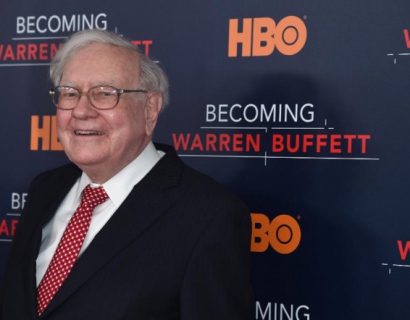Everything for  Business
Business
 Business
Business
 Business
Business

When investing, sometimes the best way to make money in the stock market over time is to do nothing. Just invest passively.
That's what Warren Buffett did in making a $1 million bet that he could do better than a portfolio of hedge funds. Did the Oracle of Omaha find some great, bargain-priced stocks? Did he make the deal of the century by finding an emerging tech company?
Nope. He simply said that by investing in a boring, low-cost stock index fund you could outperform most hedge funds over the past decade. He made no new investments and didn't time the 2008 market crash. He just stayed put in an index fund.
How clever is that? Well, it requires no investing skill, although when you do the math, it's brilliant. By just riding the tide of the stock market -- and not timing it -- you do much better than guessing when to jump in and out. Research proves this works most of the time.
Here's some evidence from S&P indexes, which tracks the performance of index funds vs. actively managed funds over time for every type of fund: Big company stock funds underperformed indexes nearly 93% of the time for a 15-year period (through June of last year).
What about bond funds? The record for active managers is even worse: Some 98% of government bond funds lagged the index over a decade and a half.
The reason active managers rarely beat low-cost baskets of securities is that they have to charge more for management -- while delivering lower returns. When you subtract their management fee (expressed as a percentage in an "expense ratio"), their cut always eats into your performance.
With hedge funds, the management fees can be egregious -- up to 2% annually, plus 20% of profits. If managers aren't beating the market in a big way, their take cuts deep into your pocket.
By the way, the cheapest broad-market stock index fund will only charge you 0.03% annually. Where the decimal point is located will earn you a lot more money. Here's a list of the cheapest funds.
The winning margin for Buffet wasn't even close. When 2017 ended, Buffett's plain-vanilla stock fund averaged a 7.1% compounded average return, vs. 2.2% for the hedge fund basket.
While the numbers don't sound all that impressive, the compounding is powerful. Let's say you started out with a $100,000 and invested for 30 years. Assuming you didn't invest another dime, you'd have more than $761,000 after three decades in the index fund using Buffett's example. You'd only accumulate $192,00 at 2 percent return, according to the AARP calculator.
The bottom line: By investing passively in a dirt-cheap index fund you could nearly quadruple your nest egg.
Can you pull off Buffett's win without wagering a million bucks? While no returns are guaranteed in stocks, you'll do better than most investors who jump in and out of the market.
You can either regularly invest in your 401(k)'s indexes or target-date funds that provide automatic investment allocation. Although you may not reap $1 million over a decade -- Buffett's winning wager was donated to Girls, Inc. in Omaha -- you can certainly do well over time if you stay the course.
Forbes.com
 What are you doing with your RV in the offseason?
What are you doing with your RV in the offseason?
 Adobe will buy online design startup Figma for $ 20 billion
Adobe will buy online design startup Figma for $ 20 billion
 To combat the gas crisis, Germany offers a new plan for cheap transit
To combat the gas crisis, Germany offers a new plan for cheap transit
 Porsche family seeks iPO buyout after tearful defeat
Porsche family seeks iPO buyout after tearful defeat
 Clubs and bars are popping up all over Manhattan, providing an alternative social hub and jobs.
Clubs and bars are popping up all over Manhattan, providing an alternative social hub and jobs.
This site uses cookies and other visitor identifiers for the convenience of each user. If you stay on our site after reading this message, it means that you have no objection to the use of these technologies. Learn more
